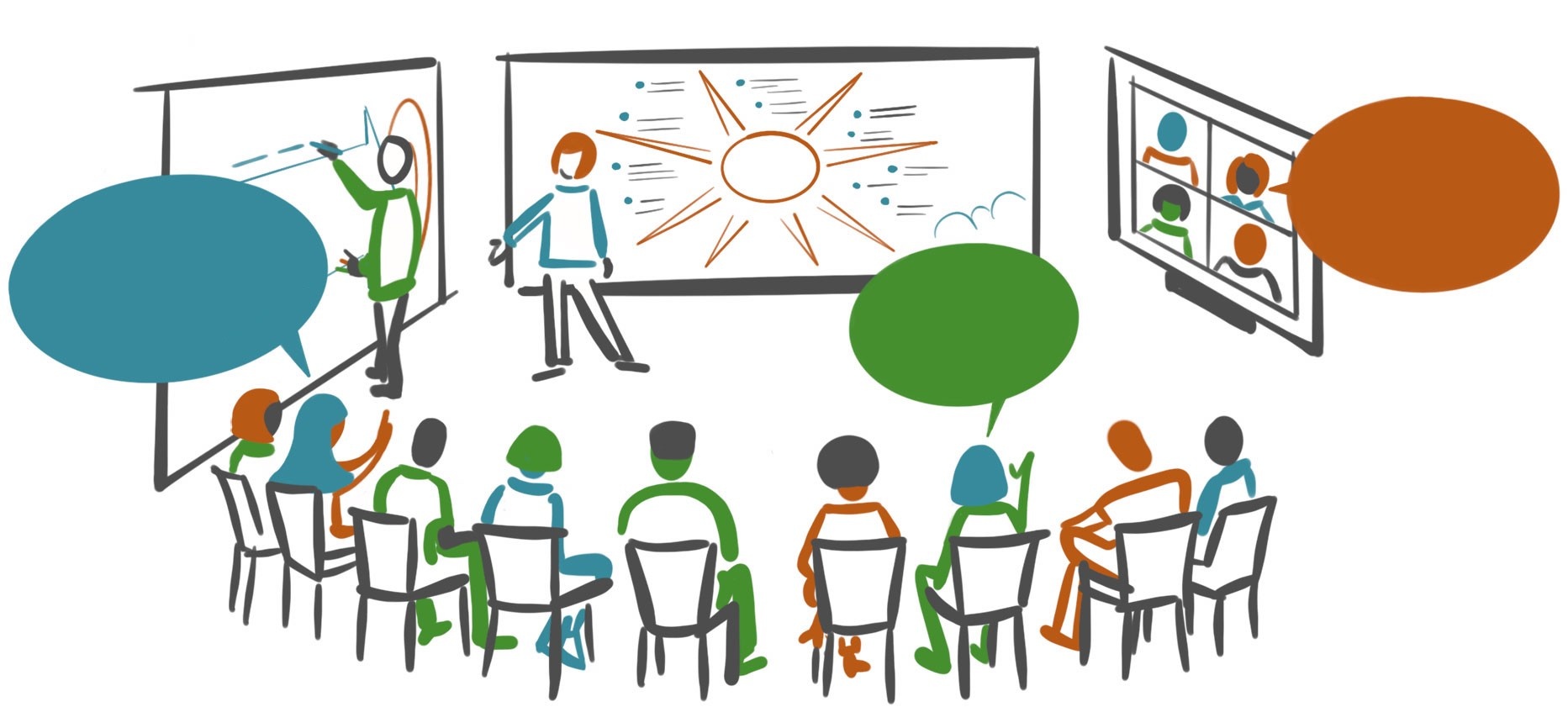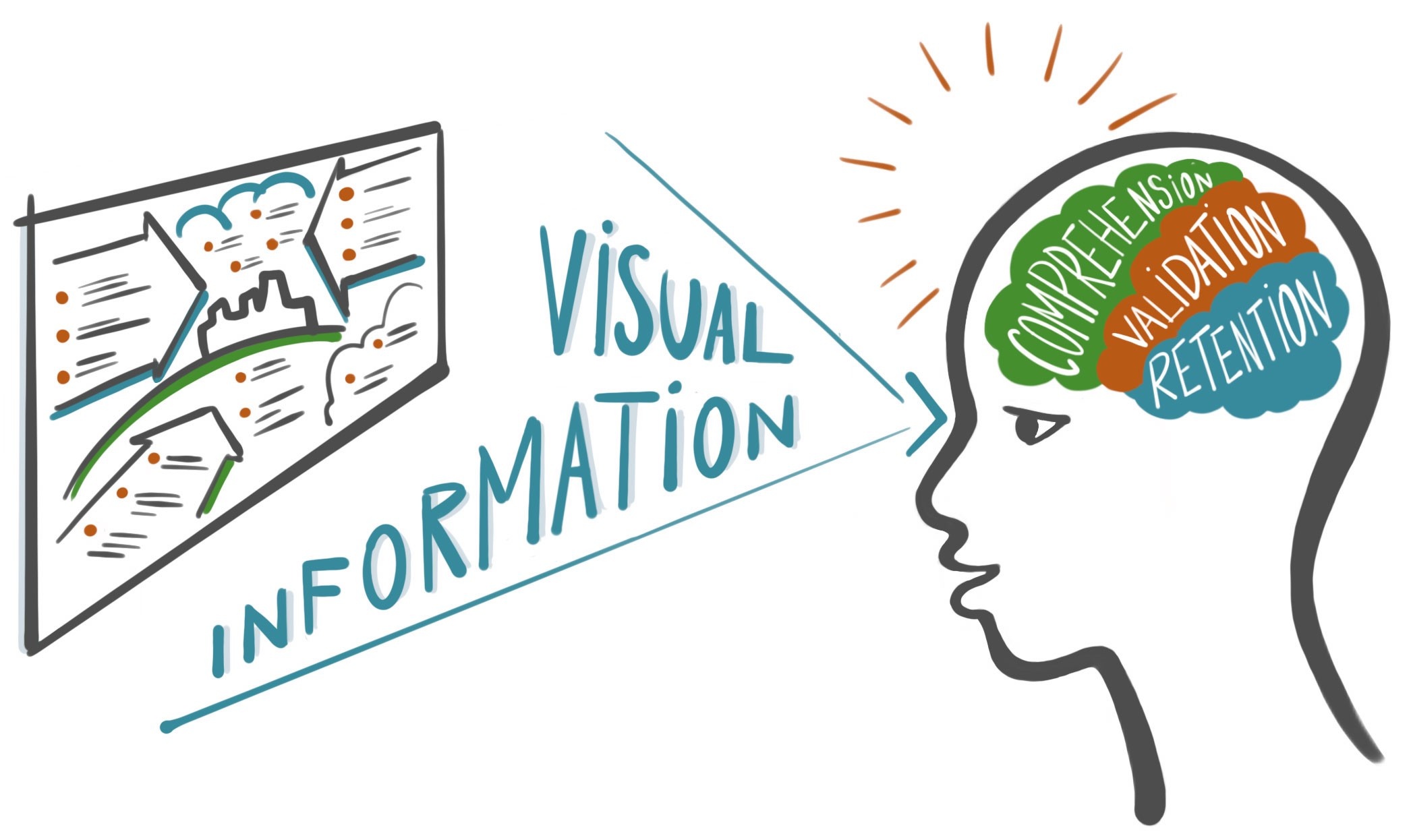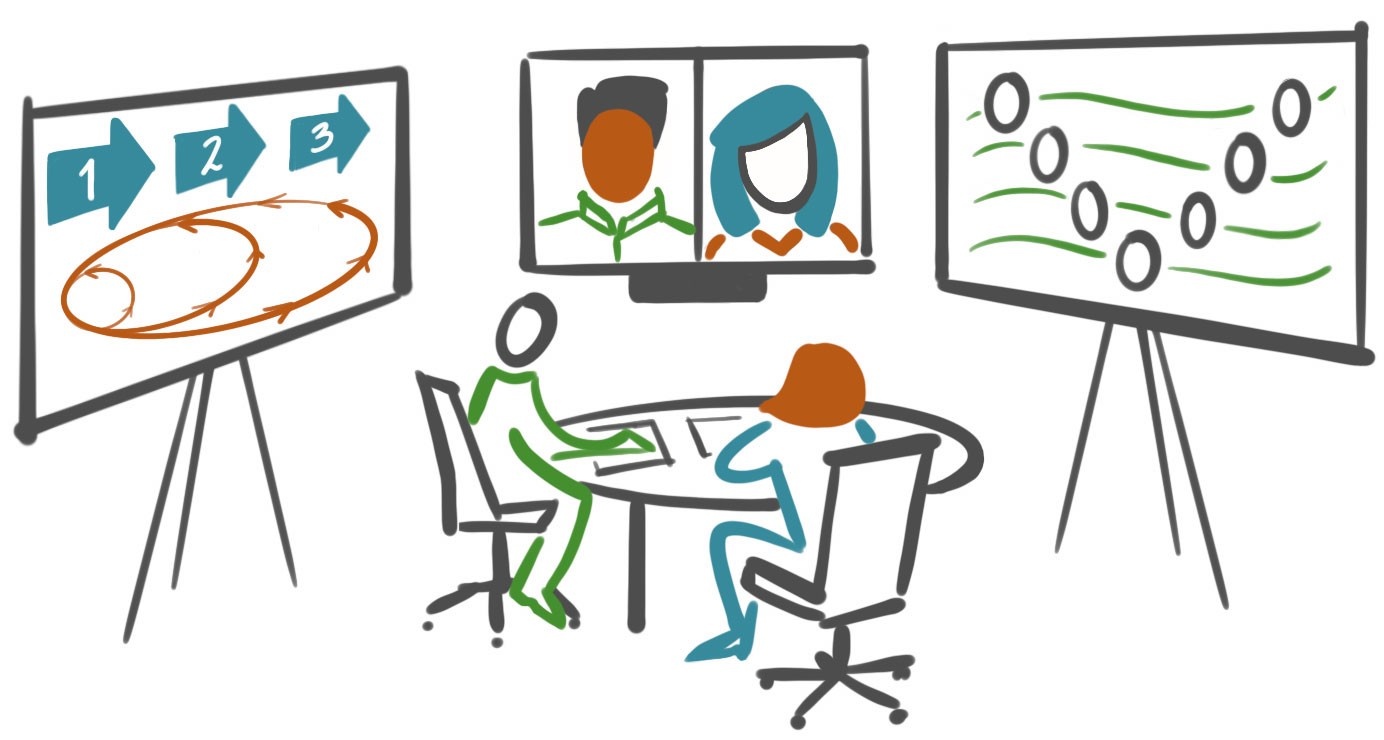Grove Methodology
We connect groups with their own wisdom through skilled facilitation.
Groups often hold the collective knowledge to navigate challenges and unlock opportunities, but they need facilitation expertise to release innovative thinking and craft solutions. We help groups unravel their old, ineffective narratives and create new, shared stories. By honoring all voices, we help catalyze a diversity of opinion for stronger decision-making.


We spark imagination, engagement and big-picture thinking with visualization.
Visual group practices energize contribution and rapid comprehension, and allow people to “connect the dots” to work at higher levels of complexity. By capturing conversations visually, we help individuals see their valued contribution to the group’s understanding of the whole system. Not only do visuals elevate group intelligence, they greatly increase the capacity to retain information. Thus, groups more easily remember and act on the agreed-upon path forward.
We generate alignment and guide change through co-created process design.
We co-design engagement and implementation processes with clients to ensure that relevant activities, pacing and focus are in service to aligned action. Our solutions draw from our knowledge of universal, organizational patterns. A robust Theory of Process, developed by Arthur M. Young, and adapted for organizations by David Sibbet, provides a unified operating system. Below are examples of practical applications, in the form of process models, developed through decades of field work.

The Following Process Models Support Our Work

The Grove Facilitation Model™
The Grove Facilitation Model illustrates, in a suggested order, seven clusters of facilitation strategies needed for successful group process. In simple terms, it is a container for those skills and practices involved in leading group toward its intended outcomes.

The Drexler/Sibbet Team Performance Model®
The Drexler/Sibbet Team Performance Model illustrates the necessary stages involved in both creating and sustaining successful teams. It provides a common organization-wide framework for teaming across functions, cultures, and distances.

Seven Challenges of Change™ Framework
The Seven Challenges of Change Framework shows the basic pattern of change through predictable stages. These challenges come into play for any project that requires new ways of thinking, real behavior change, and new organizational or social change processes.

The Grove’s Group Graphics® Keyboard
Graphic language includes the frameworks and formats that help facilitators organize text and images in the act of visualizing information for group comprehension. These repeating, general patterns are illustrated in The Grove’s Group Graphics Keyboard.

The Grove’s Strategic Visioning™ Model
The Grove’s Strategic Visioning™ Process is keyed to this model and steps groups through the development of traditional strategic analysis, creative visioning work, focused action planning, and organization-communications design.

Wendling Liminal Pathways Change Framework™
The Wendling Liminal Pathways Change Framework illustrates the three basic phases of change, the dynamic interplay between the inner process of going through a change and the outer support that helps guide and bring a change to completion. It is applicable to all human systems.
What challenges are you facing?
Let's talk.
Email us at services@thegrove.com or fill out the form below.
